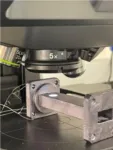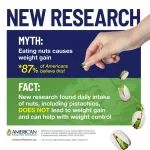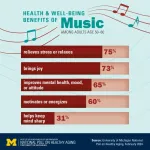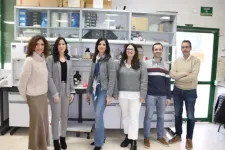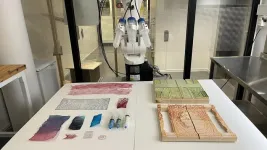(Press-News.org) DALLAS, Feb. 7, 2024 — Research teams from Northwestern University Feinberg School of Medicine, New York University and Duke University will work together to assess the accuracy of the American Heart Association’s new PREVENTTM risk calculator with funding from the Association’s De-biasing Clinical Care Algorithms project.
The American Heart Association, celebrating 100 years of service in 2024, is the single largest non-government supporter of heart and brain health research in the U.S. The de-biasing project is funded by a grant from the Doris Duke Foundation to study the role of race and ethnicity in clinical equations and their impact on equity in disease diagnosis, healthcare delivery, or health outcomes.
Each team received a $150,000 one-year research award to further study how the risk calculator performs among people of various ages, racial and ethnic backgrounds, locations and socioeconomic levels. The calculator was initially validated using health data from more than 3 million people. The new research intends to test it against even larger datasets.
The American Heart Association PREVENTTM risk calculator is a new tool for clinicians to help people understand their risk for developing heart disease, stroke, or heart failure. It estimates cardiovascular disease risk based on health factors that assess cardiovascular, kidney, and metabolic health. Unlike the current standard for risk prediction, called the Pooled Cohort Equations (PCEs), a person’s race is not included in PREVENT as a factor in determining cardiovascular risk. Previous equations included race as a surrogate for the health effects of structural and systemic inequities, such as racism, that influence cardiovascular risk. The American Heart Association developed the PREVENT calculator with data on people from diverse races and ethnicities and includes additional health measures as well as a social index to predict risk more accurately.
The research teams will comprehensively evaluate PREVENT. They will work in collaboration to assess the discrimination and calibration, cost-effectiveness and accuracy of PREVENT among different sociodemographic groups using health system data from across the U.S. They will also see how it performs compared to the PCEs.
The research projects began January 1, 2024, and include:
Evaluating and Validating Equations Across All Race and Ethnicities – led by Sadiya S. Khan, MD, MSc, a cardiovascular epidemiologist at Northwestern University Feinberg School of Medicine in Chicago.
Debiasing Clinical Care Algorithms - CKD-PC Analysis Core – led by Josef Coresh, MD, PhD, founding director of the Optimal Aging Institute and a professor of population health and medicine at the New York University Grossman School of Medicine in New York.
Evaluation of Cardiovascular Risk Prediction Equations across Diverse Sociodemographic Subgroups – co-led by Michael J. Pencina, PhD, chief data scientist and Chuan Hong, Ph.D., an assistant professor of biostatistics and bioinformatics, both at Duke University School of Medicine in Durham, NC.
Khan, Coresh and Pencina were part of the volunteer writing group that developed the PREVENT equations. PREVENT was created based on data from more than 3 million people, then validated in a different dataset of more than 3 million people to show that it is accurate in people of various ages, ethnicities and geographic areas. This new collaborative project will further test how risk prediction with PREVENT applies to a diverse sample of adults and examine accuracy across race and ethnicity groups in the U.S.
“Our goal is to test these new equations using health data from a large group of people from all races and ethnicity groups to ensure they are accurate and can inform optimal preventive approaches across the life course,” Khan said. “The improvement of accuracy in risk prediction means that doctors can act early to prevent disease in those at risk and the right patients can receive the right therapies based on their risk.”
The teams will also develop new metrics that quantify the fairness of the PREVENT calculator and compare the cost effectiveness and fairness of PREVENT to that of the PCEs. “We hope the results of our work will provide answers on the performance of PREVENT,” Hong said. “In the long term, the results can guide doctors to deliver similar care to people of all races, genders, ages and socioeconomic statuses.”
The American Heart Association has funded more than $5 billion in cardiovascular, cerebrovascular and brain health research since 1949. New knowledge resulting from this funding benefits millions of lives in every corner of the U.S. and around the world.
Additional Resources
Multimedia is available on the right column of the release link
Spanish news release
Call to Action: Structural Racism as a Fundamental Driver of Health Disparities (Nov 2020)
Heart disease risk, prevention and management redefined (Oct 2023)
Leading cardiologists reveal new heart disease risk calculator (Nov 2023)
Follow AHA/ASA news on Twitter @HeartNews
The Association receives funding primarily from individuals; foundations and corporations (including pharmaceutical, device manufacturers and other companies) also make donations and fund specific Association programs and events. The Association has strict policies to prevent these relationships from influencing the science content. Revenues from pharmaceutical and biotech companies, device manufacturers and health insurance providers and the Association’s overall financial information are available here.
###
About the American Heart Association
The American Heart Association is a relentless force for a world of longer, healthier lives. We are dedicated to ensuring equitable health in all communities. Through collaboration with numerous organizations, and powered by millions of volunteers, we fund innovative research, advocate for the public’s health and share lifesaving resources. The Dallas-based organization has been a leading source of health information for a century. During 2024 - our Centennial year - we celebrate our rich 100-year history and accomplishments. As we forge ahead into our second century of bold discovery and impact our vision is to advance health and hope for everyone, everywhere. Connect with us on heart.org, Facebook, X or by calling 1-800-AHA-USA1.
About the Doris Duke Foundation
The mission of Doris Duke Foundation is to build a more creative, equitable and sustainable future by investing in artists and the performing arts, environmental conservation, medical research, child well-being and greater mutual understanding among diverse communities. Visit www.dorisduke.org to learn more.
END
New scientific research will test PREVENT risk calculator among diverse groups
The American Heart Association provides $450,000 in grants to assess its new risk prediction tool among diverse race, age, geographic and socioeconomic groups
2024-02-07
ELSE PRESS RELEASES FROM THIS DATE:
Does your community have a personality type?
2024-02-07
Geographic sorting along ideological lines is on the rise. Counties and regions of the United States differ in political ideology. But do they differ in personality as well? Further, are people who ‘fit’ their communities healthier, happier, or more highly achieving than those who do not?
In the context of these growing divisions and to address this question, a study by Florida Atlantic University’s Kevin Lanning, Ph.D., senior author and a professor of psychology and data science in the Harriet L. Wilkes Honors College on FAU’s John D. MacArthur Campus in Jupiter, and ...
MXene-coated devices can guide microwaves in space and lighten the payload
2024-02-07
One of the most important components of satellites that enable telecommunication is the waveguide, which is a metal tube for guiding radio waves. It is also one of the heaviest payloads satellites carry into orbit. As with all space technology, reducing weight means reducing the amount of expensive and greenhouse gas-producing fuel it takes to launch a rocket, or increasing the number of devices carried by the same rocket to space. Researchers from Drexel University and the University of British Columbia are trying to lighten the load by creating and testing a waveguide made ...
Daily intake of tree nuts, including pistachios, does not lead to weight gain, body fat gain, or changes in energy intake in Millennials
2024-02-07
More than half of Americans do not currently meet the daily recommendation of 5–7 ounce equivalents^ of nuts and seeds per week.1
One possible contributor to such low intakes of tree nuts could be a fear that the calories or fat composition of tree nuts leads to weight gain.
For example, past studies suggest that up to 87% of Americans think eating nuts can lead to weight gain due to their dietary fat content2 despite scientists confirming that eating nuts every day, including pistachios,3 can be an achievable and simple strategy to ...
New method to more accurately spot underground nuclear tests
2024-02-07
A more accurate way of identifying underground nuclear tests, including those conducted in secret, has been developed by researchers at The Australian National University (ANU).
The new method could help international observers better identify tests carried out by countries or actors known to possess nuclear weapons, as well as providing new information about those suspected of being armed.
According to lead author Dr Mark Hoggard, in the aftermath of the Cuban Missile Crisis and Partial Test Ban Treaty in the 1960s, testing of nuclear ...
More than half million dollars in research grants awarded to understand No. 1 birth defect
2024-02-07
DALLAS, Feb. 6, 2024 — Five promising scientific researchers will advance their work to better understand and treat the most common birth defect in the U.S., congenital heart defects (CHDs), thanks to joint financial support from the American Heart Association and The Children’s Heart Foundation's Congenital Heart Defect Research Awards program.
To date, the American Heart Association, celebrating 100 years of lifesaving service and devoted to a world of healthier lives for all, and The Children’s Heart Foundation, dedicated to funding congenital heart defect research, have ...
Rice’s Santiago Segarra wins NSF CAREER Award
2024-02-07
HOUSTON – (Feb. 7, 2024) – Artificial intelligence is good at many tasks involving data in the form of text, audio and images, including face recognition and text summarization.
“AI is an amazing tool and has been extended over less conventional domains, such as climate data defined on spheres (representing the Earth) and traffic data defined on road networks,” said Santiago Segarra, assistant professor of electrical and computer engineering and statistics.
With his five-year, $599,138 CAREER Award from the National Science Foundation, Segarra intends to study the use of graphs to represent these ...
Music may bring health benefits for older adults, poll suggests
2024-02-07
Whether it’s singing in a choir, playing the living room piano, joining in hymns at church, or just whistling along with the radio, a new poll finds that nearly all older adults say music brings them far more than just entertainment.
Three-quarters of people age 50 to 80 say music helps them relieve stress or relax and 65% say it helps their mental health or mood, according to the new results from the University of Michigan National Poll on Healthy Aging. Meanwhile, 60% say they get energized or motivated ...
From waste to resource: A new and sustainable process transforms sewage sludge into activated carbon
2024-02-07
Sewage sludge is the solid waste resulting from wastewater treatment. According to data from the Ministry for the Ecological Transition and the Demographic Challenge, 1.2 million tons of this waste were produced in Spain in 2021 alone, and its management is a growing problem. Although some of it may have agricultural applications, such as being used as fertilizer after composting, its high concentration of metals limits its use, generating environmental problems.
A new study has managed to give this waste a second life, turning it into activated carbon, a product boasting ...
Incheon National University researcher examines proactive change-oriented behaviors by public service providers
2024-02-07
Although change-oriented behaviors are critical to high quality public service delivery, encouraging employees to embrace and pursue change in the public sector is difficult. Even with sufficient job autonomy–the principal antidote to resistance to change in the public sector literature–public servants may still lack the incentives, skills, information, and sense of security necessary to engage in proactive change-oriented behavior. Consequently, while job autonomy is undoubtedly important, it alone is not enough, as demonstrated by the many cases in which autonomy fails to lead to change and work process improvements. Given the importance of attitudes ...
3D printed nanocellulose upscaled for green architectural applications
2024-02-07
For the first time, a hydrogel material made of nanocellulose and algae has been tested as an alternative, greener architectural material. The study, from Chalmers University of Technology in Sweden and the Wallenberg Wood Science Center, shows how the abundant sustainable material can be 3D printed into a wide array of architectural components, using much less energy than conventional construction methods.
The construction industry today consumes 50 percent of the world’s fossil resources, generates 40 percent of global waste and causes 39 percent of global carbon dioxide emissions. There is a growing line of research into biomaterials and their applications, in ...
LAST 30 PRESS RELEASES:
Scientists discover why we know when to stop scratching an itch
A hidden reason inner ear cells die – and what it means for preventing hearing loss
Researchers discover how tuberculosis bacteria use a “stealth” mechanism to evade the immune system
New microscopy technique lets scientists see cells in unprecedented detail and color
Sometimes less is more: Scientists rethink how to pack medicine into tiny delivery capsules
Scientists build low-cost microscope to study living cells in zero gravity
The Biophysical Journal names Denis V. Titov the 2025 Paper of the Year-Early Career Investigator awardee
Scientists show how your body senses cold—and why menthol feels cool
Scientists deliver new molecule for getting DNA into cells
Study reveals insights about brain regions linked to OCD, informing potential treatments
Does ocean saltiness influence El Niño?
2026 Young Investigators: ONR celebrates new talent tackling warfighter challenges
Genetics help explain who gets the ‘telltale tingle’ from music, art and literature
Many Americans misunderstand medical aid in dying laws
Researchers publish landmark infectious disease study in ‘Science’
New NSF award supports innovative role-playing game approach to strengthening research security in academia
Kumar named to ACMA Emerging Leaders Program for 2026
AI language models could transform aquatic environmental risk assessment
New isotope tools reveal hidden pathways reshaping the global nitrogen cycle
Study reveals how antibiotic structure controls removal from water using biochar
Why chronic pain lasts longer in women: Immune cells offer clues
Toxic exposure creates epigenetic disease risk over 20 generations
More time spent on social media linked to steroid use intentions among boys and men
New study suggests a “kick it while it’s down” approach to cancer treatment could improve cure rates
Milken Institute, Ann Theodore Foundation launch new grant to support clinical trial for potential sarcoidosis treatment
New strategies boost effectiveness of CAR-NK therapy against cancer
Study: Adolescent cannabis use linked to doubling risk of psychotic and bipolar disorders
Invisible harms: drug-related deaths spike after hurricanes and tropical storms
Adolescent cannabis use and risk of psychotic, bipolar, depressive, and anxiety disorders
Anxiety, depression, and care barriers in adults with intellectual and developmental disabilities
[Press-News.org] New scientific research will test PREVENT risk calculator among diverse groupsThe American Heart Association provides $450,000 in grants to assess its new risk prediction tool among diverse race, age, geographic and socioeconomic groups

